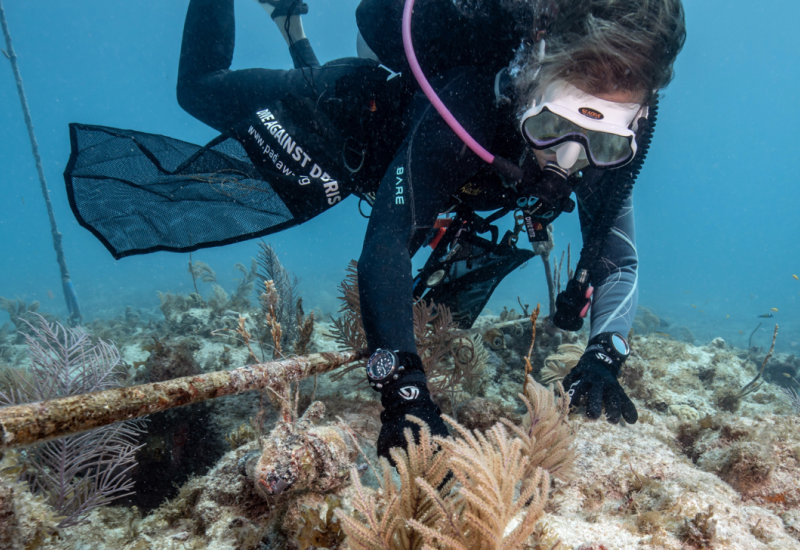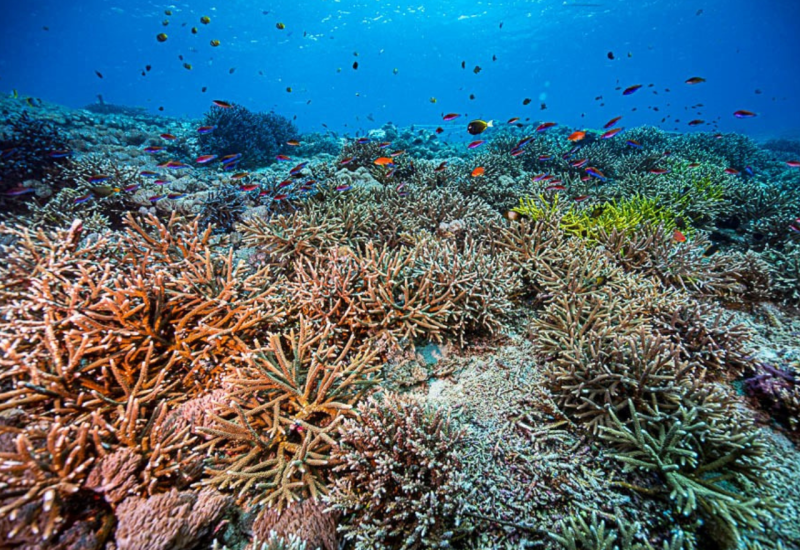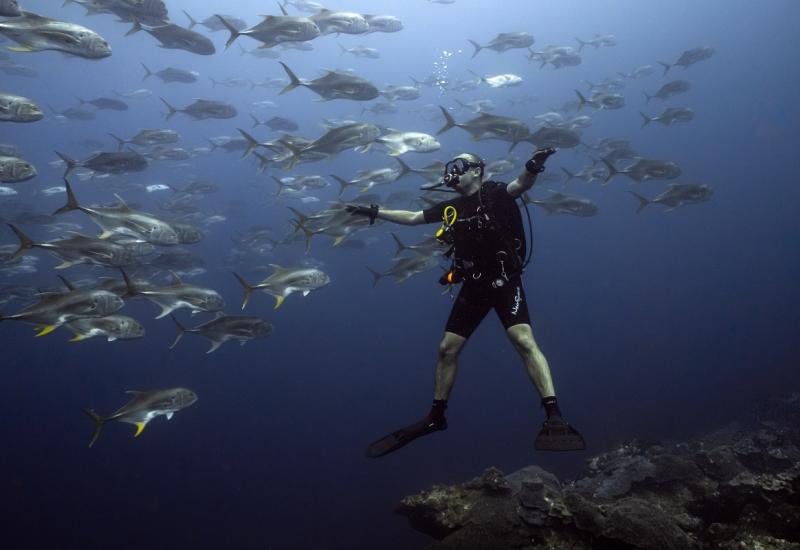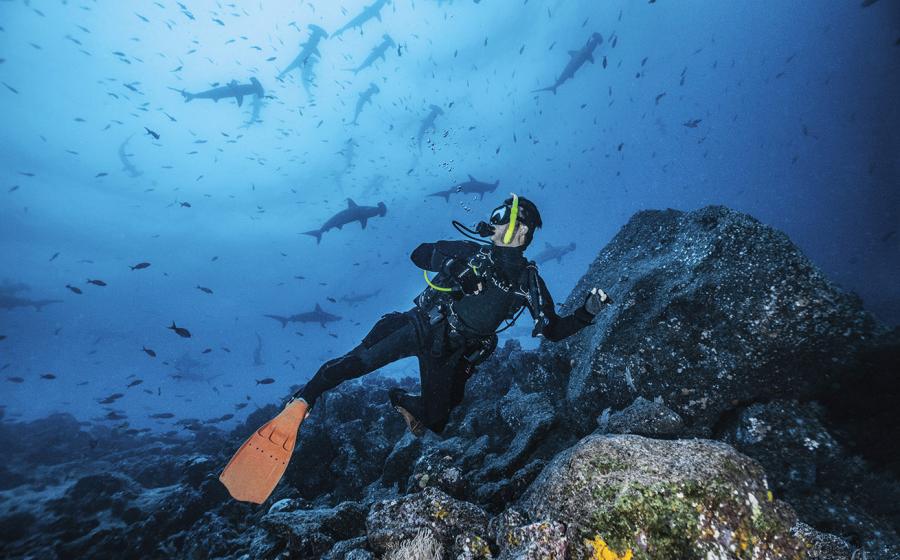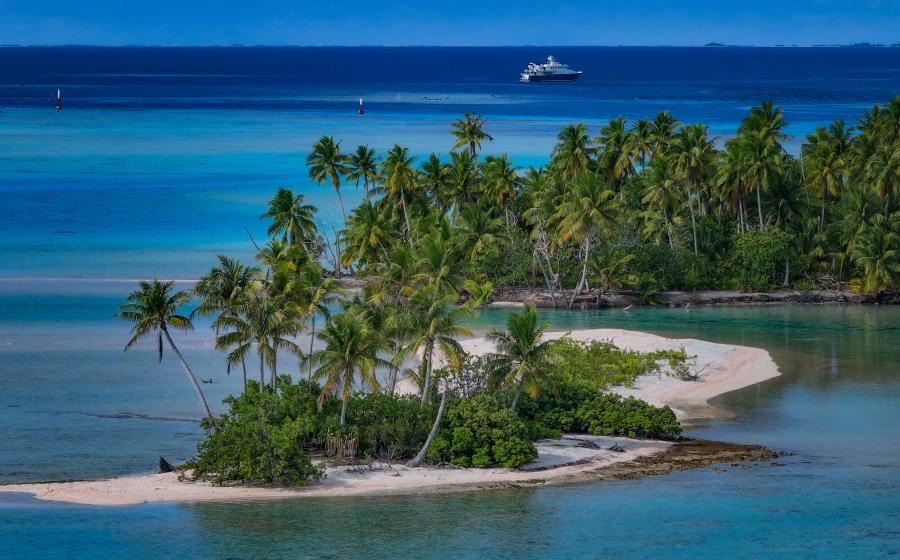Sharks Are ‘Functionally Extinct’ In Reefs Around the World, Study Says
Sharks are “functionally extinct” on upwards of 20 percent of the world’s reefs, according to the first global survey of shark populations in coral reefs. The increasing rarity of the ocean’s apex predator threatens to destabilize these marine ecosystems.
"At a time when corals are struggling to survive in a changing climate, losing reef sharks could have dire long-term consequences for entire reef systems,” Mike Heithaus, co-lead of Global FinPrint, the organization leading the study, tells EcoWatch.
The landmark estimate, conducted by more than 850 scientists and volunteers and recently published in Nature, comes from more than 15,000 hours of footage captured over multiple years. 15,000 baited remote underwater video stations (BRUVS), or “chum cams,” recorded reef footage for about an hour at a time, which scientists later analyzed to count shark species. Previous studies relied on visual diver surveys, a method the team says has a larger margin of error than a stationary camera.
When possible, researchers surveyed both protected and unprotected reef sites in each country.
“As a result of doing that, we didn’t randomly survey reefs around the world,” Demian Chapman, a study co-author and biological sciences associate professor at Florida International University, tells Mongabay. “If we had randomly surveyed reefs…we mostly would have gotten reefs that were open to fishing because there are more of them than there are protected areas,” skewing the data to show an even bleaker outlook for shark populations.

Shutterstock.com/frantisekhojdyszThe study found the largest shark populations in shark sanctuaries, which are countries that have entirely banned shark fishing.
Only three sharks were spotted in nearly 800 hours of footage captured across the Dominican Republic, the French West Indies, Kenya, Vietnam, the Windward Dutch Antilles and Qatar, suggesting functional extinction.
Low shark abundance correlated with the coastal country’s = socioeconomic conditions. A high population, gillnet and longline fishing, and poor governance were all tightly tied to low shark counts.
“It’s probably a good wake up call for certain regions to pay attention, and to look at specific recommendations that could help the ecosystem recover,” says Michael Berumen, co-author of the study and professor of marine science at Saudi Arabia’s King Abdullah University of Science and Technology, according to EcoWatch.
Thirty-eight of the 58 surveyed countries showed a moderate number of sharks, a point of simultaneous concern and urgent opportunity to researchers. The team found an abundance of sharks on reefs in the Bahamas, continental Australia, the Solomon Islands, the Federated States of Micronesia and French Polynesia. Shark sanctuaries, places like the Bahamas where all shark fishing is banned, housed the largest shark populations.
"These nations are seeing more sharks in their waters because they have demonstrated good governance on this issue," Aaron MacNeil, the study's lead author and associate professor at Dalhousie University, tells EcoWatch. "From restricting certain gear types and setting catch limits, to national-scale bans on catches and trade, we now have a clear picture of what can be done to limit catches of reef sharks throughout the tropics."
The team will use the copious footage for other shark research, such as examining how shark populations influence reef fish abundance.
“We’re nowhere near complete analyzing this data,” Chapman says.


